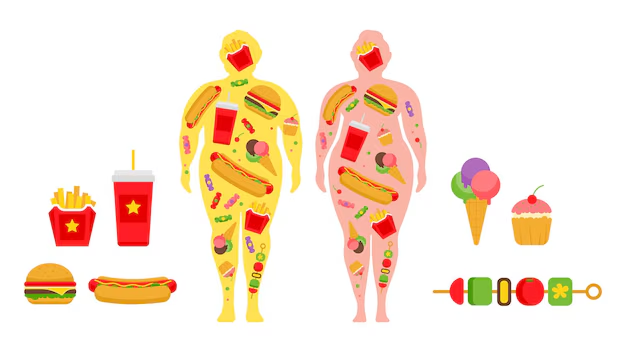The global rise in obesity rates, particularly in industrialized nations, has sparked widespread concern and debate. Among the various factors believed to contribute to this public health crisis, the fast food industry often takes center stage. With its heavily processed meals, oversized portions, and omnipresent advertising, fast food has become synonymous with unhealthy eating. But how much responsibility should the industry shoulder, and to what extent do individual choices and broader societal influences matter?
The Argument Against Fast Food Chains
Fast food meals are frequently loaded with calories, sugar, unhealthy fats, and excessive salt. A single combo meal can exceed a person’s recommended daily intake of several key nutrients. Critics argue that fast food companies make it easy to overeat by offering value deals, upsizing options, and constant promotions.
Furthermore, fast food marketing often targets younger consumers through colorful branding, toy giveaways, and digital campaigns. These efforts can influence eating habits early in life, potentially laying the groundwork for lifelong health problems.
Additionally, fast food outlets are commonly found in low-income communities, where affordable, nutritious food options are scarce. This creates environments where fast food becomes one of the few accessible and budget-friendly meal choices.
The Role of Personal and Social Factors
Despite valid criticisms of the industry, many experts caution against placing the entire burden of blame on fast food companies. Obesity is a complex issue influenced by a range of factors, including genetics, physical activity, education, and access to resources.
Individuals ultimately make their own food choices. For many, fast food offers convenience and affordability in the face of busy schedules and limited income. At the same time, declining physical activity levels and sedentary lifestyles have contributed significantly to rising obesity rates, independent of dietary changes.
In addition, socioeconomic factors like income disparity, lack of education on nutrition, and the presence of “food deserts” — areas with limited access to fresh produce — all play crucial roles in shaping dietary behavior.
How the Industry is Responding
In response to growing public scrutiny, many fast food brands have started to adapt. Restaurants have introduced new menu items that cater to health-conscious consumers, such as lower-calorie meals, grilled alternatives, and plant-based options. Some chains have also begun displaying nutritional information to help diners make more informed decisions.
While these developments suggest a shift in direction, critics argue that many of these changes are more cosmetic than substantial. Healthier options are often under-promoted or more expensive than standard offerings, making them less appealing to the average customer.
A Multifaceted Issue Requiring Collective Action
The connection between fast food and obesity is undeniable, but it does not tell the whole story. Blaming the industry alone oversimplifies a deeply rooted issue. Addressing obesity effectively requires action on multiple fronts, including:
- Stronger regulation of food marketing, especially to children.
- Public health initiatives to educate people about nutrition.
- Urban planning policies that increase access to fresh, affordable food.
Government agencies, health organizations, and communities all have a role to play in supporting healthier environments and habits.
Final Thoughts
Fast food companies have contributed to a culture of convenience eating that often prioritizes taste and speed over nutrition. However, the problem of obesity cannot be pinned on one source. It is the result of a wide array of factors that intersect in complex ways. Real progress will require a shared commitment—from individuals, industries, and policymakers alike—to create a healthier future.


Tinggalkan Balasan